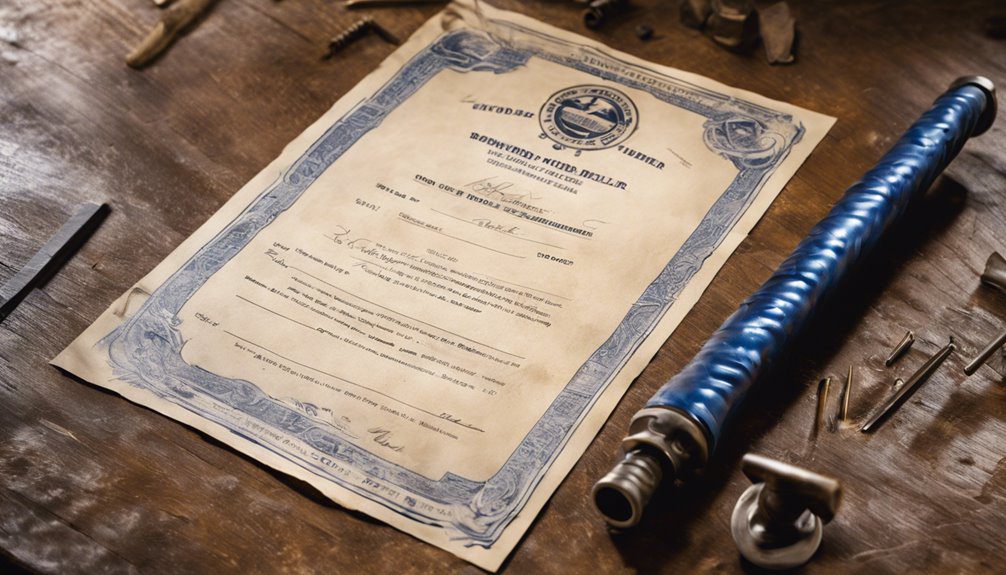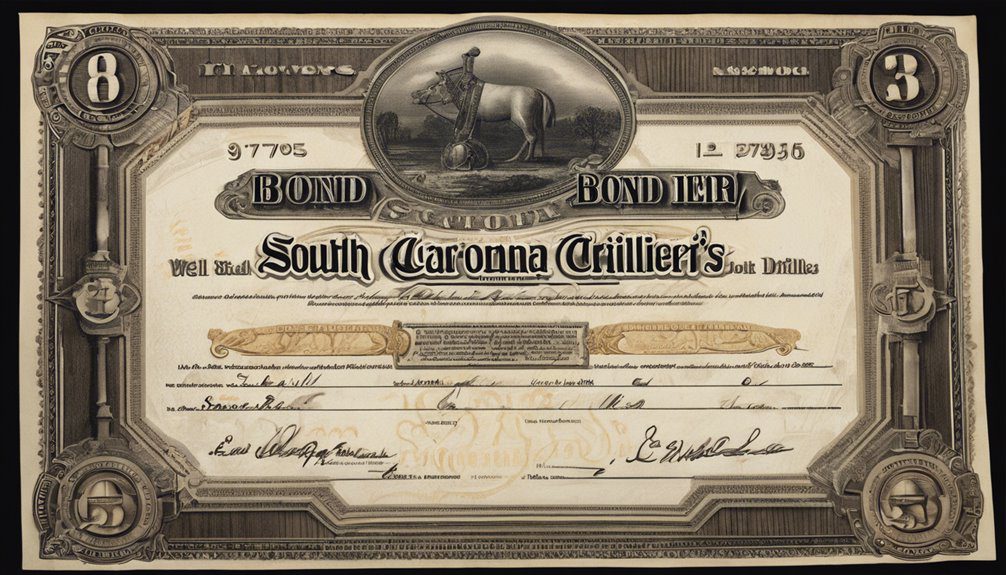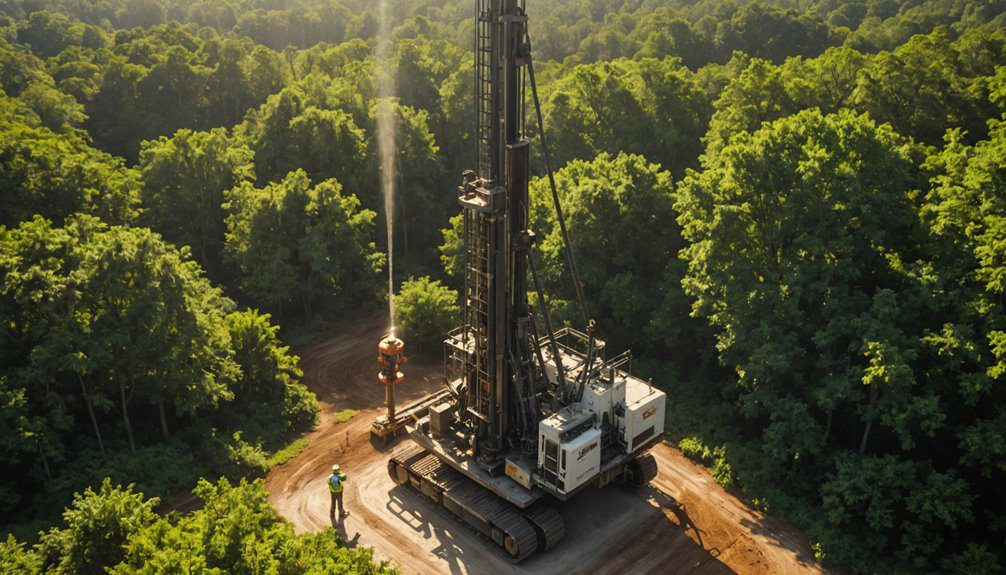If you're a well driller in South Carolina, you probably know how essential the Well Driller Bond is for your operations. This bond not only serves as a financial safety net but also reinforces your commitment to adhering to state regulations. You may be wondering about the specific legal requirements, the costs involved, and how this bond can enhance your business's reputation. Understanding these aspects is crucial, especially when considering the potential consequences of non-compliance. So, what do you need to know to navigate this process effectively?
Importance of Well Driller Bonds

Well driller bonds play a crucial role in the construction and maintenance of water wells, ensuring that both the driller and the property owner are protected. When you hire a well driller, you want assurance that the work will be done properly and in compliance with local regulations. A well driller bond provides that assurance. It guarantees that the driller will adhere to the necessary standards and complete the job as agreed.
If the driller fails to meet these obligations—whether through negligence or misconduct—you can file a claim against the bond. This process helps you recover financial losses resulting from subpar work or incomplete projects. By requiring a bond, you're also encouraging the driller to maintain a high standard of service since their financial reputation is on the line.
Moreover, well driller bonds foster trust in the industry. They demonstrate that the driller is committed to performing quality work and adhering to professional practices. This added layer of accountability makes it easier for you to choose a reliable contractor.
In short, well driller bonds not only protect your investment but also contribute to the integrity of the well-drilling profession.
Legal Requirements for Bonds
When you're navigating the process of hiring a well driller in South Carolina, understanding the legal requirements for bonds is essential. South Carolina law mandates that well drillers obtain a surety bond to operate legally. This bond serves as a financial guarantee that the driller will adhere to state regulations and complete the job properly.
To comply, you'll want to ensure that the well driller has a bond with the required amount, typically set by the state. The bond protects you as a consumer, covering potential damages or failures in service. You should verify that the bond is active and issued by a reputable surety company.
Moreover, it's crucial to check that the driller's license is valid and up-to-date. Failure to meet these legal requirements may lead to penalties for the driller and could impact your project.
Always ask for documentation that proves the existence of the bond and the validity of their license before signing any agreements. By doing your due diligence, you can ensure that you're hiring a qualified and compliant well driller, minimizing risks for your project.
Types of Bonds Available

Understanding the different types of bonds available for well drillers can help you make informed hiring decisions. In South Carolina, you'll typically encounter three primary types of bonds: performance bonds, payment bonds, and maintenance bonds.
Performance bonds guarantee that the well driller will complete the project according to the agreed-upon terms. If they fail to meet their obligations, the bond ensures that you'll receive compensation to cover any losses incurred.
Payment bonds, on the other hand, protect subcontractors and suppliers by ensuring that they'll be paid for their work, even if the well driller defaults. This type of bond is crucial if you're working with multiple parties on a project.
Lastly, maintenance bonds provide assurance that the well driller will address any issues that arise after the project is completed, typically within a defined period. This bond helps you avoid future headaches by ensuring that any necessary repairs or adjustments are taken care of. Additionally, understanding the cost of a performance bond can help you budget effectively for your drilling project.
Knowing these types of bonds can help you choose the right well driller, protecting your investment and ensuring a smooth drilling process. Always ask for proof of these bonds before making your final decision.
Application Process Overview
How do you navigate the application process for obtaining a well driller bond in South Carolina?
First, you'll need to gather the necessary documentation, which typically includes your business license, proof of insurance, and any relevant certifications.
Once you've got your paperwork in order, it's time to choose a surety company. Research and compare different providers to find one that suits your needs.
Next, you'll fill out an application form provided by your chosen surety. Be honest and thorough in your responses, as this information will help the surety assess your qualifications.
After submitting your application, the surety will conduct a background check, which may involve reviewing your credit history and business practices.
Once your application is approved, you'll receive a quote for the bond premium. Make sure to review the terms carefully and ask any questions if you need clarification.
After agreeing to the terms, you'll pay the premium and the surety will issue your bond.
Costs Associated With Bonds

Costs associated with obtaining a well driller bond in South Carolina can vary significantly based on several factors.
First, the amount of coverage you need will impact the bond's cost. Typically, higher coverage means a higher premium.
You'll also want to consider your credit score, as it plays a crucial role in determining the bond's price. If your credit score is strong, you might pay a lower premium; however, a lower score could lead to higher costs.
Additionally, the surety company you choose can affect your bond's price. Different companies have varying rates, so it's wise to shop around for the best deal.
You'll also encounter administrative fees during the application process, which can add to your overall costs.
Lastly, keep in mind that some companies may require collateral or additional documentation, which could lead to extra expenses. Understanding the bonding process is essential for navigating these costs effectively.
To get the most accurate estimate, it's a good idea to request quotes from multiple surety providers. This way, you can ensure you're getting the best value for your well driller bond while meeting all the necessary requirements.
Bond Renewal Procedures
Renewing your well driller bond in South Carolina is a crucial step to ensure continuous compliance with state regulations.
To start the renewal process, you'll need to gather necessary documentation, including your current bond certificate and any relevant identification. Reach out to your bonding company well in advance of the expiration date; they can guide you through their specific renewal procedures.
Next, review any changes in your business operations or personal information that might affect your bond. If everything is in order, the bonding company may require you to fill out a renewal application or provide updated information.
Be prepared to pay any renewal fees, which might differ from your initial costs.
Once you've submitted your application and fees, maintain communication with your bonding company. They'll notify you once your renewal is processed.
After you receive your renewed bond, make sure to keep a copy on file and send a copy to the appropriate state agency if required.
Staying proactive with your bond renewal ensures you avoid any lapses in coverage and keeps your business running smoothly in compliance with South Carolina regulations.
Consequences of Non-Compliance

Failing to comply with state regulations regarding your well driller bond can lead to significant repercussions. First and foremost, you risk losing your ability to operate legally. If your bond isn't maintained or renewed as required, authorities may suspend or revoke your license, putting your business on hold. This not only affects your reputation but can also result in financial losses as you're unable to take on new projects.
Additionally, non-compliance can expose you to legal liability. If a client suffers damages due to your failure to follow regulations, they may pursue legal action against you. This could lead to costly lawsuits and settlements that could jeopardize your financial stability.
Moreover, non-compliance may result in fines or penalties from state regulatory bodies. These costs can accumulate quickly, straining your budget and affecting your overall profitability.
Ultimately, staying compliant with your well driller bond requirements isn't just a legal obligation; it's essential for maintaining your business's reputation and financial health. You must prioritize compliance to avoid these dire consequences and ensure your business's long-term success.
Tips for Choosing a Surety
When selecting a surety for your well driller bond, it's crucial to consider a few key factors that can significantly impact your business.
First, look for a surety company with a strong financial standing and a solid reputation. You want a partner who can fulfill their obligations without any issues, so check their ratings with agencies like A.M. Best or Standard & Poor's.
Next, evaluate their experience in the well drilling industry. A surety with a proven track record in your field will better understand your unique needs and challenges. This can make a big difference in the underwriting process and the support you receive.
Don't forget to compare rates and terms among different sureties. While price matters, focusing solely on cost can lead to issues down the road.
Make sure you understand the fine print and any additional fees that might apply. Additionally, ensure that the surety you choose is compliant with Illinois Department of Financial and Professional Regulation regulations, as this is vital for maintaining your bond's validity.
Impact on Business Reputation

A solid reputation is invaluable for your well drilling business, and having the right surety bond plays a crucial role in shaping that image. When clients see that you're bonded, it signals professionalism and reliability. They know you've met specific legal and financial standards, which can set you apart in a competitive market.
Your bond acts as a safety net, ensuring that clients can seek compensation if you fail to deliver on your promises. This trust factor can lead to more referrals, as satisfied customers are likely to recommend you to others.
On the flip side, without a bond, you might struggle to establish credibility, making it harder to win contracts and build lasting relationships.
Moreover, a solid bond can enhance your marketing efforts. When you advertise your bonded status, you're not just promoting your services; you're showcasing your commitment to quality and accountability. This can attract a broader client base, ultimately boosting your bottom line. Additionally, having a license and permit bond ensures compliance with laws and regulations, further reinforcing your business's integrity.
In short, investing in the right surety bond isn't just a legal requirement; it's a strategic decision that can elevate your business reputation and foster long-term success.
Resources for Further Information
To navigate the complexities of obtaining a South Carolina well driller bond, it's essential to tap into reliable resources. Start with the South Carolina Department of Health and Environmental Control (DHEC) website, where you'll find official guidelines and requirements for well drilling. They provide crucial information about licensing, regulations, and the bonding process.
You should also consult the South Carolina Secretary of State's office. They can help you understand the legal requirements and ensure you're compliant with state laws.
Additionally, consider reaching out to professional organizations, such as the South Carolina Groundwater Association. They often offer support, networking opportunities, and valuable insights into industry best practices.
Don't overlook the importance of bonding companies. Speak with agents who specialize in surety bonds, as they can clarify the terms and conditions of your bond, helping you make informed decisions.
Lastly, online forums and local community groups can be great for sharing experiences and tips from others who've successfully navigated the process. By utilizing these resources, you'll be better equipped to secure your South Carolina well driller bond efficiently and effectively.
Conclusion
In summary, securing a South Carolina Well Driller Bond is essential for your business. It not only ensures you comply with local regulations but also boosts your credibility and fosters trust with clients. By understanding the legal requirements and costs, you can make an informed decision that protects both your interests and those of your customers. Investing in this bond enhances your reputation and promotes high service standards, ultimately leading to greater customer satisfaction and business success.


